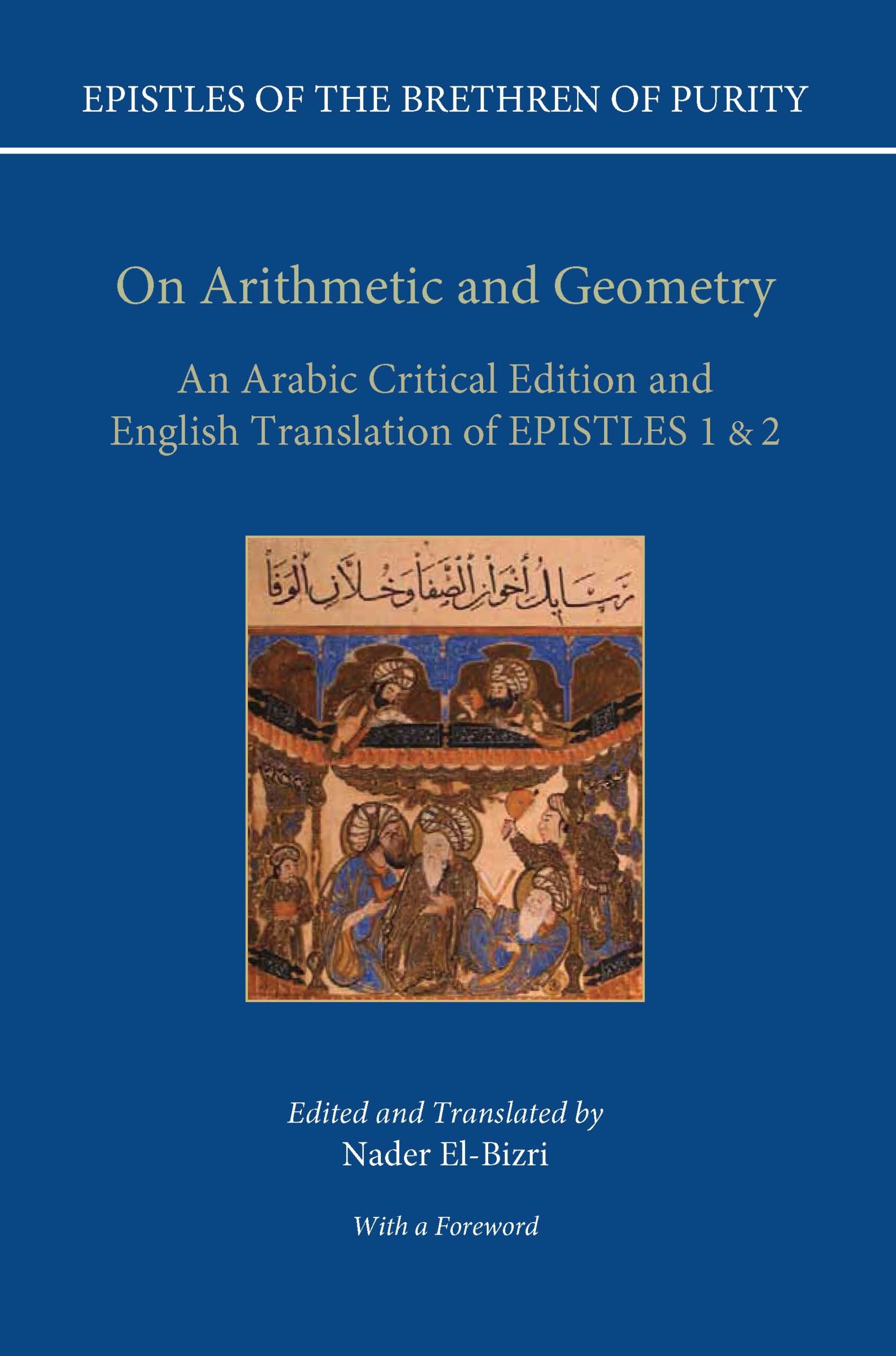The Ikhwān al-ṢafāʾFrom Arabic, lit. ‘Brethren of Purity’, a group of learned scholars who were based in Basra and Baghdad around the last quarter of the t10th century CE. It is more… (Brethren of Purity), the anonymous adepts of a tenth-century esoteric fraternity based in Basra and Baghdad, hold an eminent position in the history of science and philosophy in Islam due to the wide reception and assimilation of their monumental encyclopaedia, the Rasāʾil Ikhwān al-Ṣafāʾ (Epistles of the Brethren of Purity). This compendium contains fifty-two epistles offering synoptic accounts of the classical sciences and philosophies of the age; divided into four classificatory parts, it treats themes in mathematics, logic, natural philosophy, psychology, metaphysics, and theology, and also includes didactic fables.
Epistles 1 and 2 present technical and epistemic analyses of mathematical concepts, and of their metaphysical underpinnings, investigating the properties of numbers and of geometric magnitudes, based primarily on the traditions of Nicomachus of Gerasa and of Euclid. The Ikhwān view arithmetic and geometry through a monotheistic spiritual lens, with a Pythagorean construal of the ultimate principles of mathematics within the symbolic order of mysticism, which is inspired by their ontological outlook on the articles of faith in Islam. The content of this volume also offers enlightening perspectives regarding the canonization and popularization of the mathematical sciences within the greater Islamic intellectual milieu.
Foreword
Introduction
Technical Introduction
Epistle 1: On Arithmetic
Epistle 2: On Geometry
Appendix to Epistle 2
Select Bibliography
Subject Index
Index Locorum
Rasāʾil 1 & 2 (Arabic Text & Variants)
Arabic Appendix
Arabic Subject Index
Arabic Index of Names
‘[T]his volume is a major contribution to Islamic intellectual history—scholarly, supported, and judicious. The translation on the whole is fluent . . . and the edition and its principles are clear.’
– Sajjad H. Rizvi, The American Journal of Islamic Social Sciences
‘reading through the commentary (or, even better, the text itself) gives a nice quick snapshot of how the medieval Islamic scholar began his study of the mathematical sciences.’
– MAA Reviews
Dr Nader El-Bizri, the General Editor of the Epistles of the Brethren of Purity series, is an Associate Professor in the Civilization Sequence Program at the American University of Beirut. Previously, he has taught at the University of Lincoln, the University of Cambridge, the University of Nottingham, the London Consortium, and Harvard University, in addition to having held research positions at the Institute of Ismaili Studies in London, and the Centre National de la Recherche Scientifique in Paris.
Dr El-Bizri’s main areas of research are in Islamic intellectual history, phenomenology, and architectural humanities, all subjects on which he has both published and lectured widely and internationally. As well as contributing to various BBC radio and TV programs, he has also acted as a consultant to the Science Museum in London, the Aga KhanA title granted by the Shah of Persia to the then Ismaili Imam in 1818 and inherited by each of his successors to the Imamate. Trust for Culture in Geneva, and the Solomon Guggenheim Museum in New York and Berlin. Furthermore, he serves on the editorial boards of publications by Oxford University Press, Cambridge University Press, Springer, I. B. Tauris, and E. J. Brill. Besides his academic profile, he used to practise as a professional architect in offices in London, Cambridge, New York, and Beirut.

